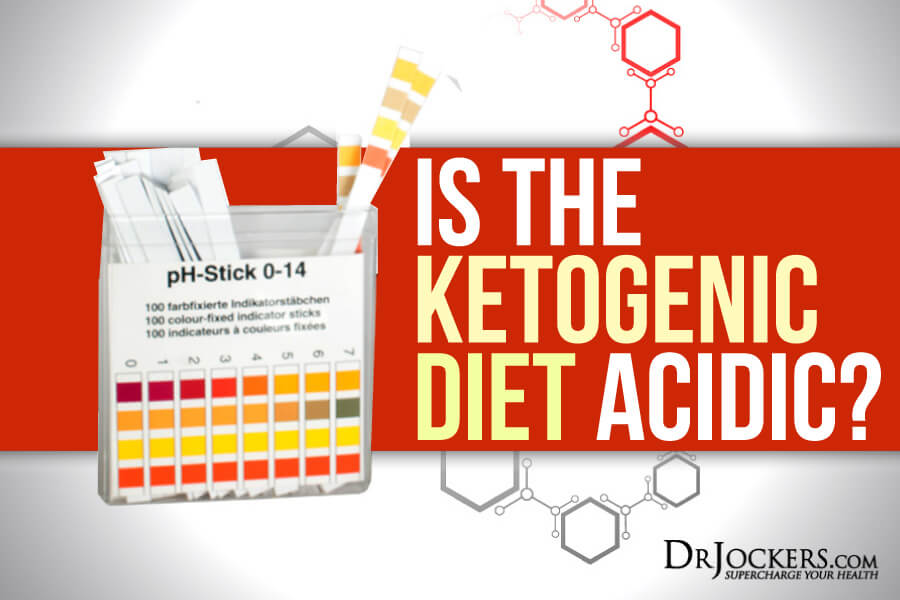 Is the Ketogenic Diet Acidic?
Is the Ketogenic Diet Acidic?
One of the most common misconceptions about the ketogenic diet is that it makes the body overly acidic. While it is possible to make a ketogenic diet acidic, it is not inherently acidic and in fact, may be alkaline forming. Much of this concern is rooted in our understanding of ketoacidosis, a harmful physiological condition associated with type I diabetics (1). But is a ketogenic diet acidic, or do we need to update our understanding of the metabolism?
Using the ketogenic diet clinically for many years, I have become well versed in the nuances of ketone metabolism. A ketogenic diet in a healthy person is dramatically different from ketoacidosis. In fact, one might say they could be considered opposites as one is a powerful healer while the other is potentially life threatening.
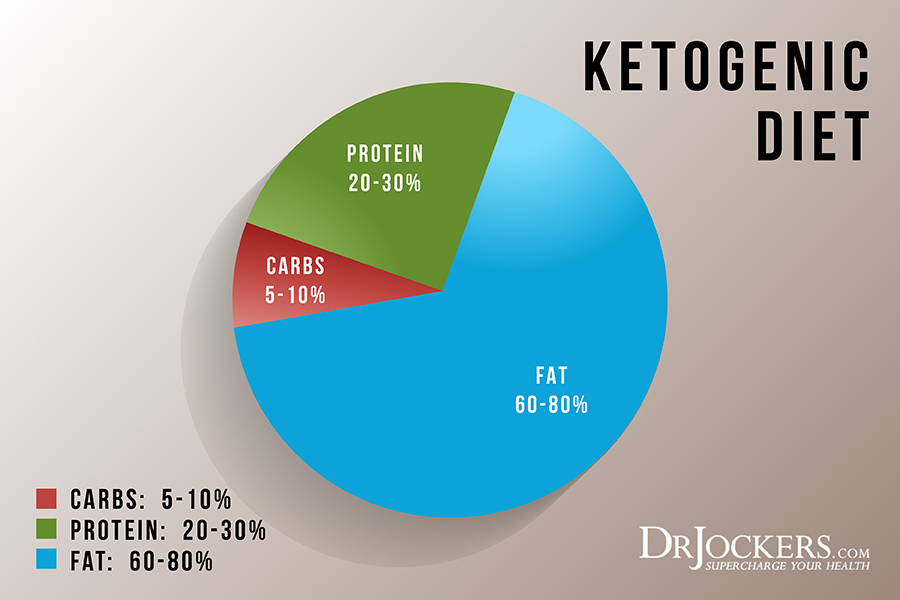
What is a Ketogenic Diet?
A ketogenic diet is one that trains the body to burn fat, instead of sugar, as its primary energy source. This happens by consuming most of your calories from fat sources, while strictly limiting the amount of carbohydrates that you consume in a given day. Once the body realizes that there has been a drop in insulin and that there is not an abundant supply of sugar to be burned as energy, it shifts its metabolism to burn fats.
In a normal healthy person, this production of ketones is still regulated by insulin. This is important because too many ketones in the blood can become dangerous as it increases acidity in the body. On the other hand, Type I diabetics are unable to produce insulin and are therefore subject to reaching dangerously high levels. This is what leads some to believe that this circumstance makes the ketogenic diet acidic.
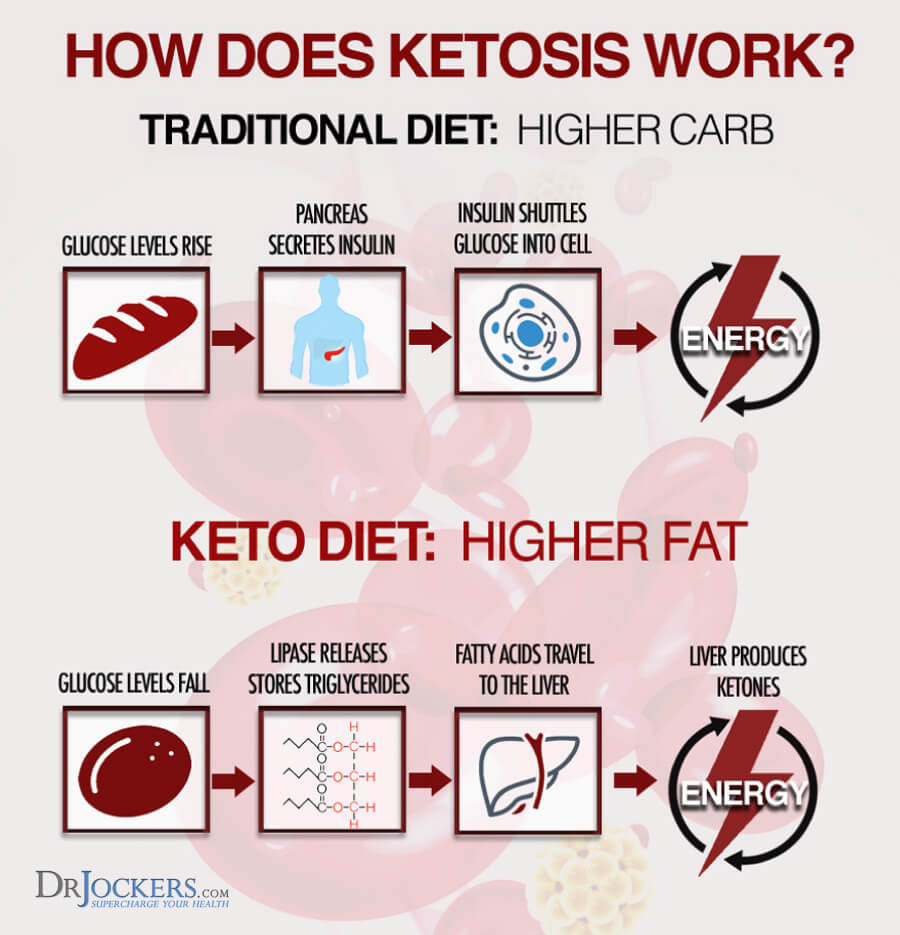
Nutritional Ketosis Vs. Ketoacidosis
Type I diabetics cannot produce insulin. This means they must use self-administered exogenous insulin to stabilize blood sugar when they consume meals. This is because insulin is responsible for actually taking sugar from the blood and transporting it into the cells for energy. Without it, cells cannot make energy and they starve.
When insulin is not present for a period of time, the brain perceives the body to be in a starvation state and begins to produce ketones as an alternative energy source. Insulin also plays the role of regulating how many ketones are circulating in the blood at any one time. When insulin is not present, ketone bodies can reach levels upwards of 20 mmol/L in the blood.
To compare, a healthy person could fast for 20 days (a deep ketogenic stimulus) and only reach 5 or 6 mmol/L. Reaching this state of 20 mmol/L of ketones is dangerous as it makes the blood dangerously acidic and increases the viscosity of blood which can be potentially fatal.
Luckily, reaching this state through a ketogenic diet if you are a healthy person is virtually impossible. As we will discuss, there are certain factors that make a ketogenic diet acidic. Even in these cases, however, reaching the state of urgency found in keto acidosis is nearly impossible.
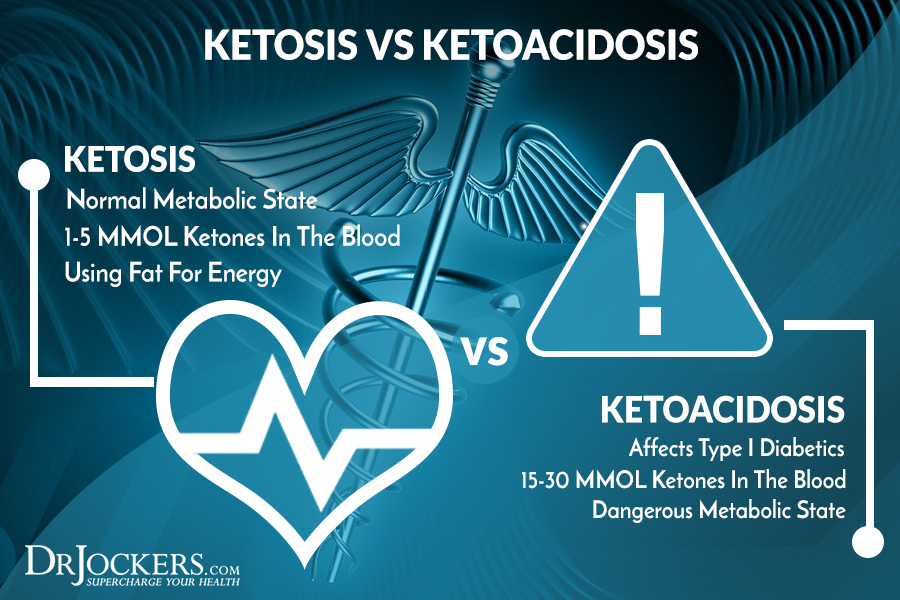
Is A Ketogenic Diet Acidic?
A properly formulated ketogenic diet has massive health benefits and is actually one of the safest and most reliable ways of improving the body’s ability to heal from many different conditions. While it may take a week or two for the average person to become fully fat-adapted, afterward most people report improved mood and energy levels across the board.
Additionally, a ketogenic diet may actually have an alkaline effect on the body as well as a dramatic anti-inflammatory effect. So, when people are concerned with a ketogenic diet being acidic, it is understandable, but fortunately is far from the truth.
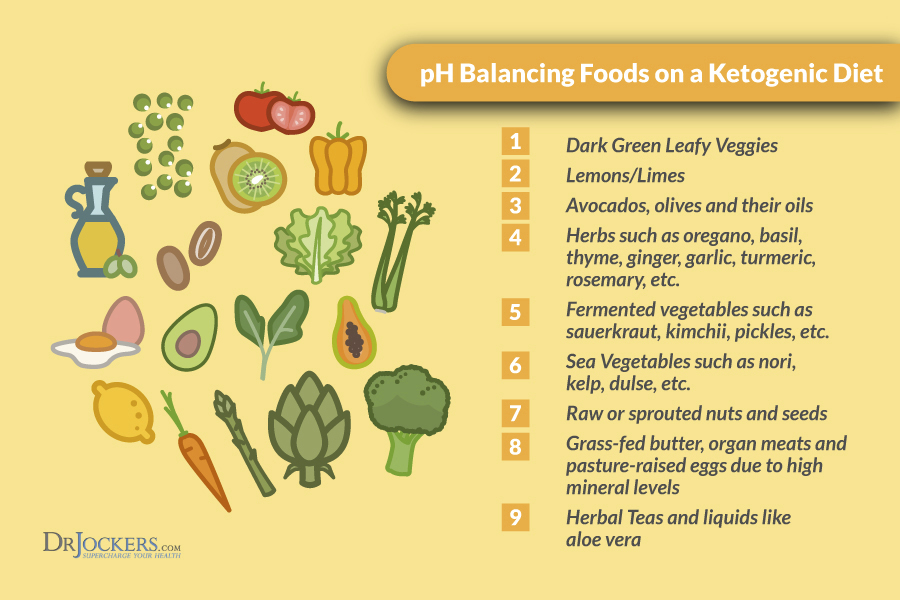
Ketogenic Vs Glucogenic
There are primarily two ways of creating energy in the body, by burning fat and by burning sugar in a process called respiration. Respiration can occur in the mitochondria in the presence of oxygen (aerobic respiration) or it can occur in the intercellular fluid in the absence of oxygen (anaerobic respiration).
When the body becomes more acidic or becomes poorly oxygenated, the cells resort to using anaerobic respiration to make energy from sugar. This is less than ideal because anaerobic respiration is highly inefficient and results in the rampant production of lactic acid as a byproduct which further contributes to acidic conditions in the body.
Most people in our society take this step further as they rely on very nutrient-poor and processed carb sources as a regular source of calories. These processed sources of sugar and carbs without any form of nutrition just exacerbate the acidic conditions. This is because the body must actually give up its own minerals and nutrients in order to process such nutrient-lacking foods.
It is this physiological state where people experience chronic low energy, and chronic pain, and become much more susceptible to cancer growth. Consequently, when one is consuming a low-carb diet that is high in healthy fats, ketones are formed in the liver which then are transported into the mitochondria, bypassing the anaerobic respiration process and drastically cutting down on lactate production.
In reality, a high sugar diet is much more likely to be problematically acidic as compared to a ketogenic diet.
Is Acidity Always Bad?
The body is actually an amazing thing. It has the ability to ensure that the stomach remains in an acidic state while the bloodstream remains slightly alkaline at a pH of 7.365. With that said, acidity isn’t necessarily a bad thing, given that it is in the right context. In fact, our blood pH is actually very well controlled.
While our diet and lifestyle can favor acidity or alkalinity, the body will actually do a phenomenal job of making sure the blood’s pH doesn’t change. This is because any drastic change in the pH of your blood could quickly become life threatening.
The downside to this is that if you are constantly influencing your body to favor an acidic state, it will use its own minerals (from bones for example) to make sure the pH of the blood does not fluctuate too much. As a result, someone may eventually experience something like osteoporosis from consuming a highly processed foods diet. This is another reason I advocate for a more ketogenic style of eating that also emphasizes plenty of mineral-rich foods.
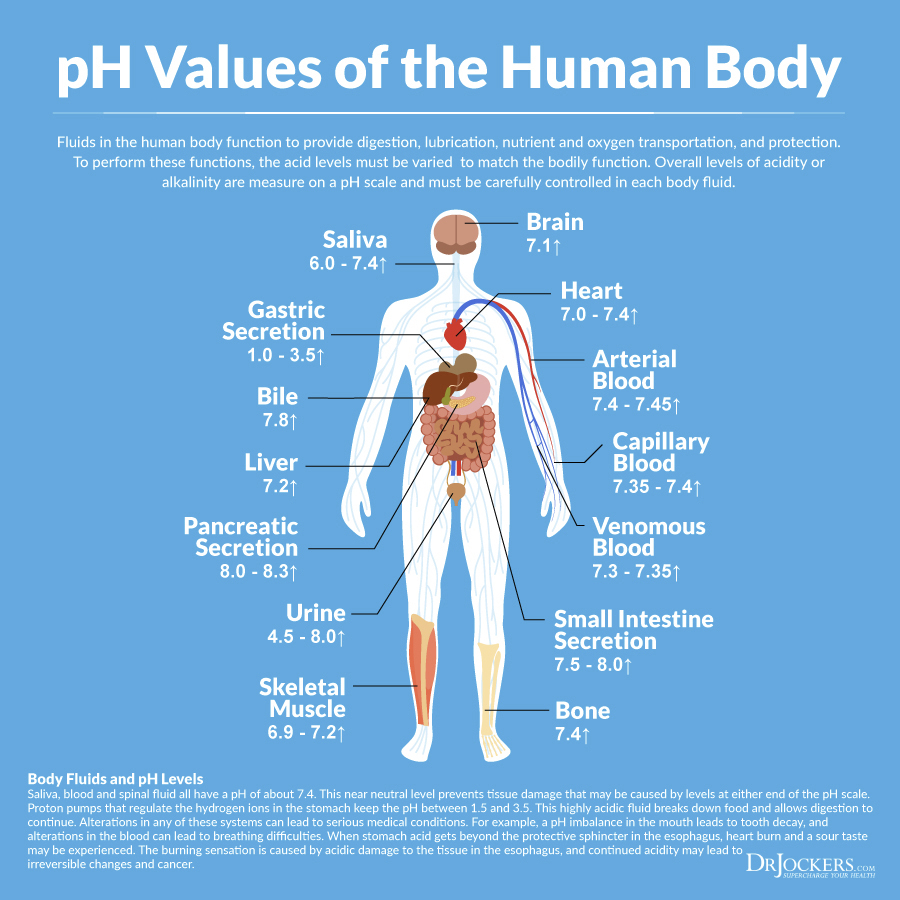
Benefits of a Ketogenic Diet
Amongst the fear of a ketogenic diet being dangerous, a wide body of evidence has shown the powerful benefits of this style of eating. From a broad perspective, a ketogenic diet helps to boost mitochondrial function, lower inflammation, and balance blood sugar (2, 3). These three effects alone have the potential to promote massive healing in the body of the average person.
Originally designed to combat seizures without drugs, the ketogenic diet also has strong brain-boosting effects that many people notice within weeks of beginning. This is likely due to the brain’s preference for ketone bodies as an energy source and less energy fluctuation than sugar metabolism.
Additionally, a ketogenic diet has significant implications for fighting cancer, combatting neurodegenerative disorders, and overall improving quality of life (4, 5).
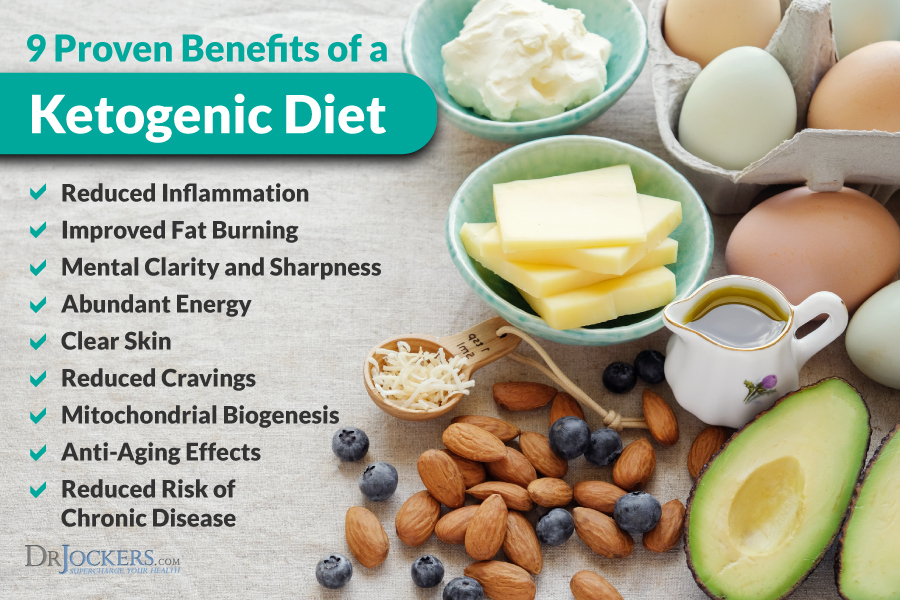
Acid Forming Foods
While a ketogenic diet isn’t inherently acidic enough to cause any physiological harm in the body, there are certain eating habits that can make it more acid forming and cause their own health problems. These are common foods that can make a ketogenic diet acidic:
- Excessive Protein
- Alcohol
- Processed Vegetable Oils
- Caffeine
- Dairy Products
Luckily, a well formulated ketogenic diet will eliminate any concern of promoting excessive acidity.
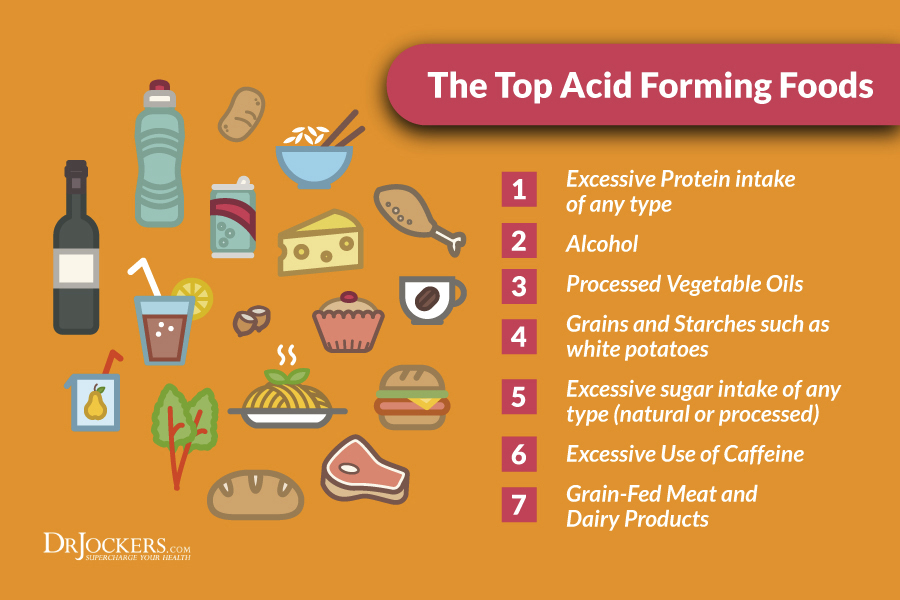
5 Tips to Promote Alkalinity
While there are certainly less ideal ways of following a ketogenic diet that may promote acidic conditions in the body, a properly implemented ketogenic diet completely eliminates this concern.
Not only do certain foods improve alkalinity, but certain lifestyle strategies can also have a powerful impact. Finally, it may even be arguable that a ketogenic diet is more alkaline forming than a non-ketogenic diet based on what we know about the metabolism of sugar.

Support Mitochondrial Function
The first step to improving alkalinity in the body is to boost mitochondrial function. Mitochondria are the energy production factories of the body. Along with energy, mitochondria also produce waste products. The more poorly functioning mitochondria are, the more waste products they release.
One benefit of a ketogenic diet is that the initial adaptation process actually promotes the shedding of damaged mitochondria while promoting the growth of newer and stronger ones. The result is more efficient energy production and less metabolic waste products contributing to acidity in the body.
Intermittent fasting, high-intensity exercise, and specific nutrients can have additional mitochondrial boosting benefits.
Nutrients that support mitochondrial function include coQ10, L-carnitine, D-ribose, magnesium, Alpha-lipoic acid (ALA), omega-3 fats, and B complex vitamins. I will often use Brain Supercharge for supplemental mitochondrial support.
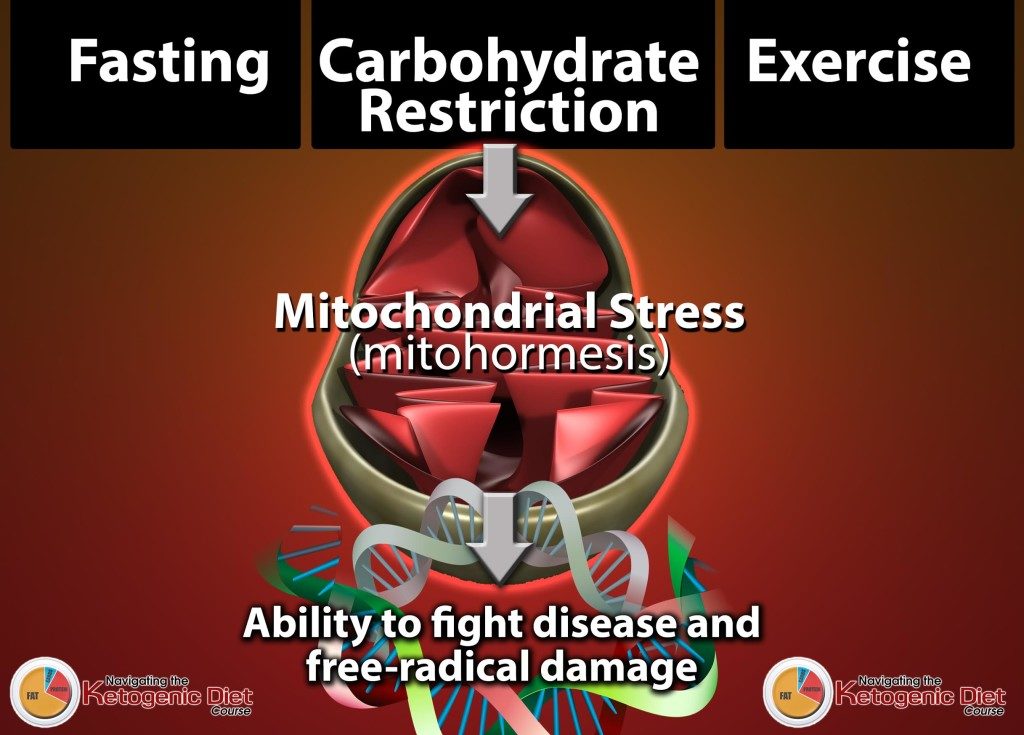
Increase Antioxidant Intake
Something I always emphasize to people is that a ketogenic diet is not a high-protein diet. Many people simply consume way too much meat. I like to place a large emphasis on plant foods while following a ketogenic diet. Basically, we want the majority of our calories from healthy fats, a moderate amount of clean proteins (check out this article for more specific guidelines), and A LOT of nutrient-dense non-starchy vegetables.
Putting a larger emphasis on plant foods has a tremendous impact on ensuring that your diet is alkaline favoring. Some of the best foods for improving alkalinity are leafy green veggies, high-water veggies like cucumber and celery, and citrus fruits like lemons and limes squeezed in water or on foods.
Some more powerful sources of antioxidants include:
Green tea, turmeric, ginger, cinnamon, oregano, berries, thyme, rosemary, and raw cacao.

Blood Sugar
Blood sugar dysregulation is associated with increased amounts of lactic acid in the body (6). This means by stabilizing your blood sugar, you may be able to favor a more alkaline internal environment within the body.
When blood sugar is high, the blood tends to be more acidic. This means that most people in modern society (especially those with insulin resistance) are going to be in a chronic acidic cycle that leaves them tired and inflamed. Luckily, following a ketogenic diet has a natural blood sugar stabilizing effect.
For additional strategies to balance blood sugar and promote alkalinity in the body, check this article: 7 Simple Strategies to Buffer Blood Sugar Levels.
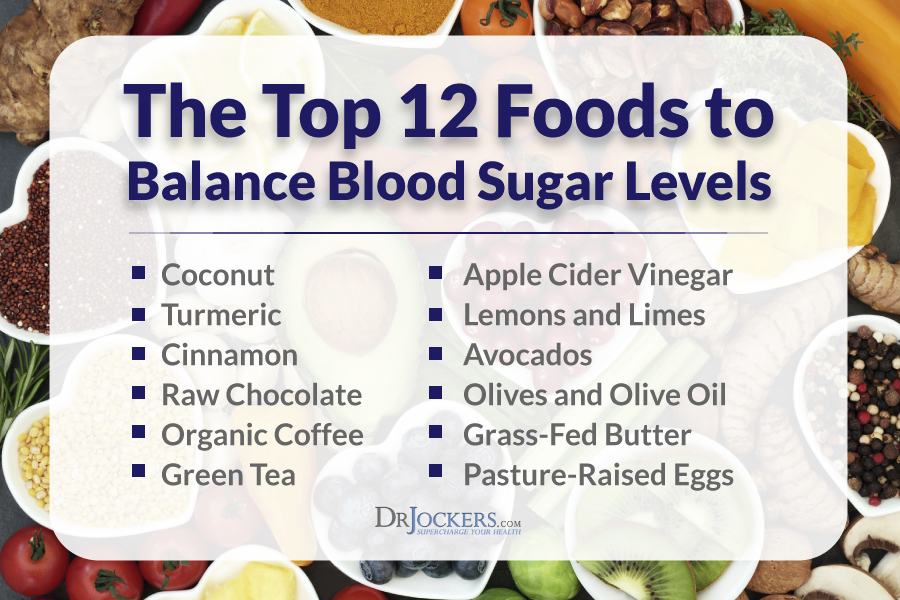
Improve Oxygenation
One of the most powerful ways to promote alkalinity in the body is to increase oxygenation to your tissues. There are many ways of doing this, but one of the most effective is simply being more active and moving regularly. Getting in some form of high-intensity exercise for a short period each day and keeping active during the rest of the day will keep your tissues much more oxygenated than if you were sedentary.
Additionally, making sure you are conscientious of your breathing pattern can be very important. Making sure you are taking deep, restorative breaths throughout the day is a great strategy to use to make sure your body is receiving the oxygen it needs.
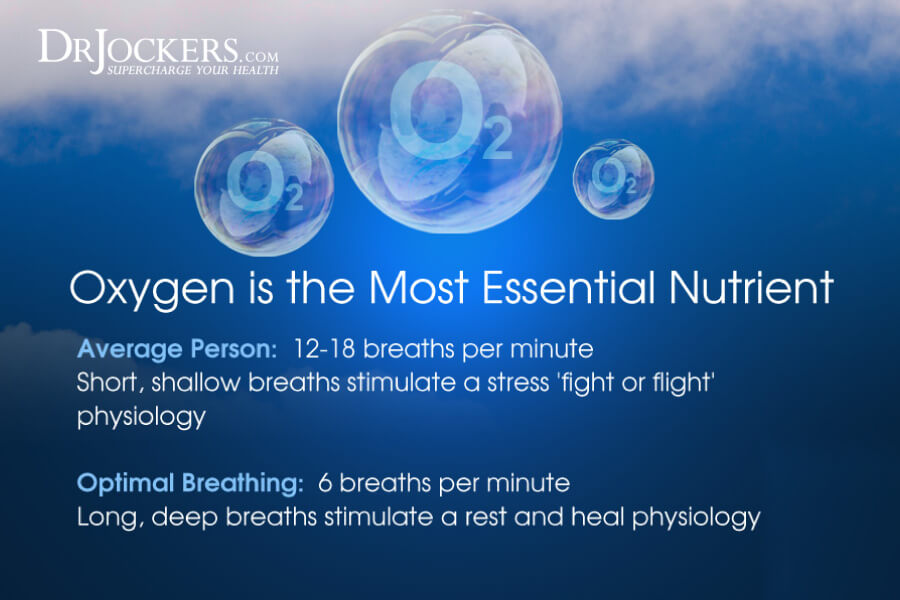
Decrease Inflammation
Chronic inflammation is at the root of almost every detrimental health condition. Helping to combat inflammation can improve mitochondrial function which can help balance out any excessive acidity produced by inefficient energy production and increased oxidative stress.
There are many advanced strategies that I often recommend for mitigating inflammation in the body. It all starts with following a ketogenic, healing diet. The graphic below outlines more of my top strategies for lowering inflammation as well.
For advanced cases, I will often recommend ProOmega Curcumin.
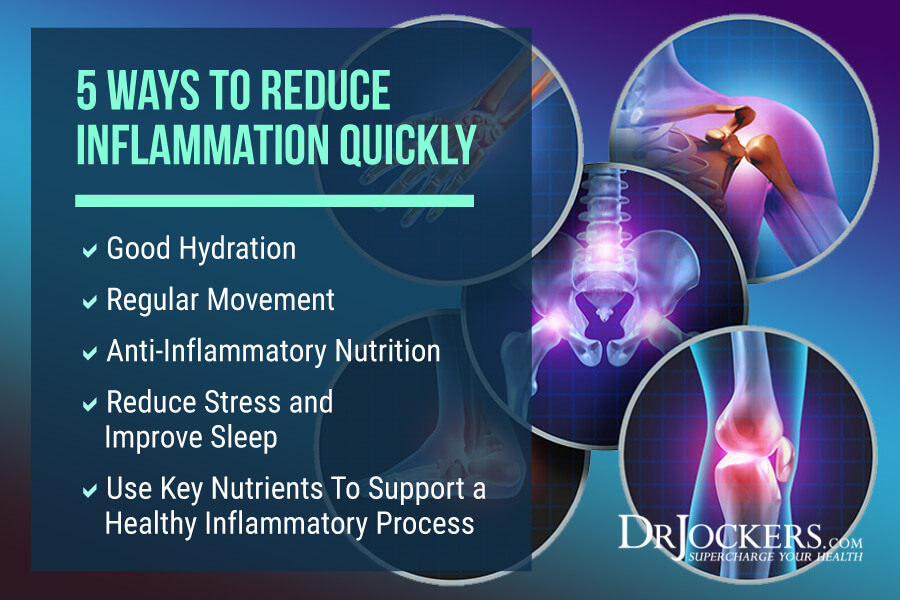
Other Important Dietary Tips
While the above tips are great general advice, there are specific dietary tips that are important for optimizing alkaline balance in the body.
Hydration and Electrolytes
First of all, drinking plenty of clean water is absolutely crucial for flushing out toxins and keeping the body hydrated. This, in turn, helps to support an alkaline environment.
Additionally, it is important to make sure you are consuming plenty of electrolyte minerals such as magnesium, potassium, sodium, and bicarbonates.
I would caution towards drinking a lot of overly alkaline water, however, as I haven’t quite seen the research supporting its use and have even seen some negative effects on digestive health with its use. Alternatively, I like to emphasize clean water (such as reverse osmosis) with trace minerals added back in.
Protein Moderation
As I alluded to earlier in this article, I believe that many of the acidity concerns of following a ketogenic diet actually come from the over consumption of meats and proteins. Many people misconceive a ketogenic diet as a high-protein diet when, in reality, it is actually a moderate protein diet if followed properly.
In general, you should be shooting for .7-1.0 grams of protein per kilogram of bodyweight. As you become more fat-adapted, your body actually gets more efficient at recycling proteins and this means less needs to be consumed compared to a carbohydrate-dependant diet.
If you are actively lifting heavy weights and trying to gain muscle weight, then you can get your protein levels up to 1.0-1.6 grams of protein per kg of bodyweight. If you are doing this, then it is a good idea to be checking your blood sugar and ketones to ensure you aren’t over consuming protein.
Consuming excessive amounts of protein can prevent someone from reaching an optimal state of ketosis. This is because excess proteins can be converted by the body into glucose via a process called gluconeogenesis.
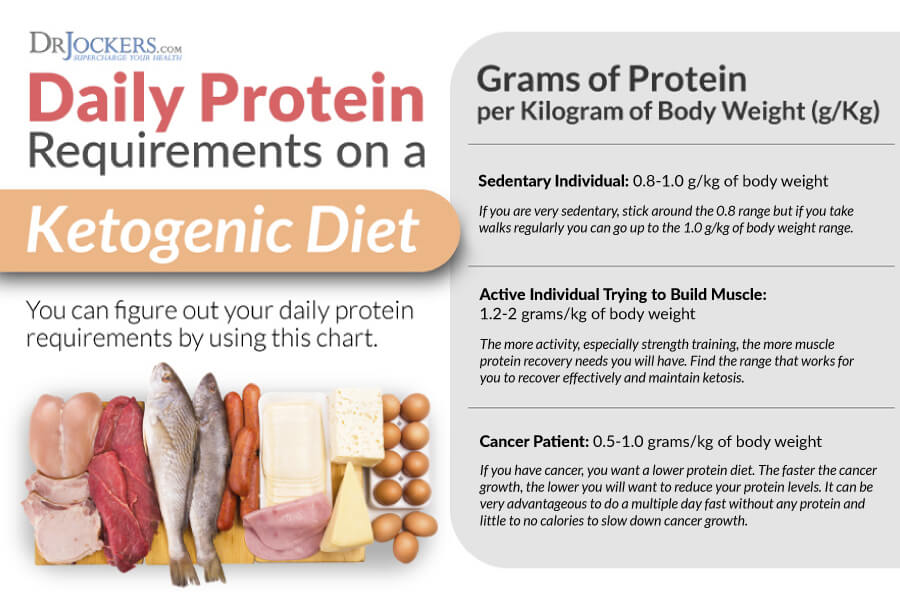
The Best Sources of Fats
Finally, one of the most important pieces of the ketogenic puzzle is what kinds of fats you are eating. Technically, you could eat tons of processed meat and cheese and be in ketosis. However, I highly advise against taking the “if it fits your macros approach” towards a ketogenic diet.
Your body uses dietary fats to build tissues in your body, including your brain. Considering this, I like to make sure my body has high-quality building supplies.
Some of the best sources of fats are outlined below.

If you want to work with a functional health coach, I recommend this article with tips on how to find a great coach. On our website, we offer long-distance functional health coaching programs. For further support with your health goals, just reach out—our fantastic coaches are here to support your journey.

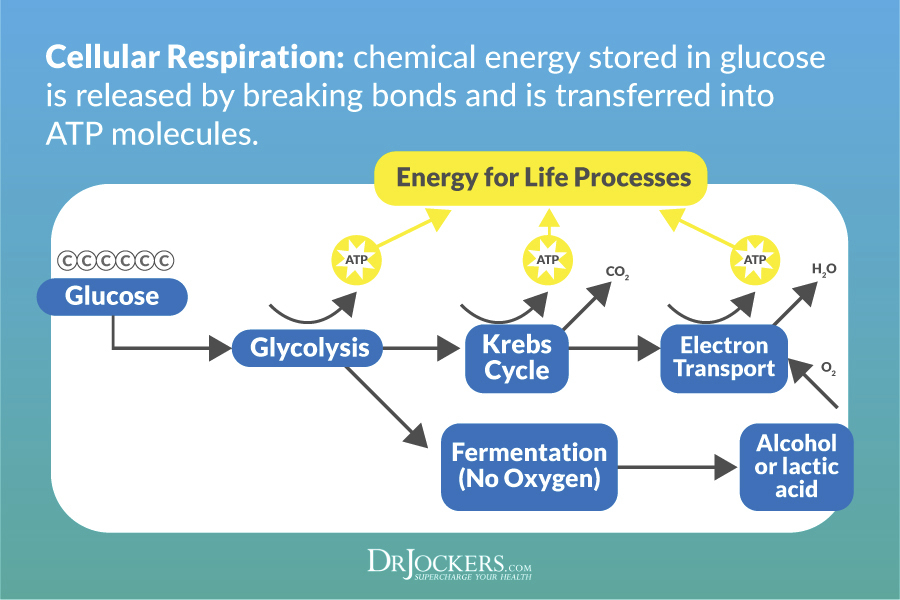



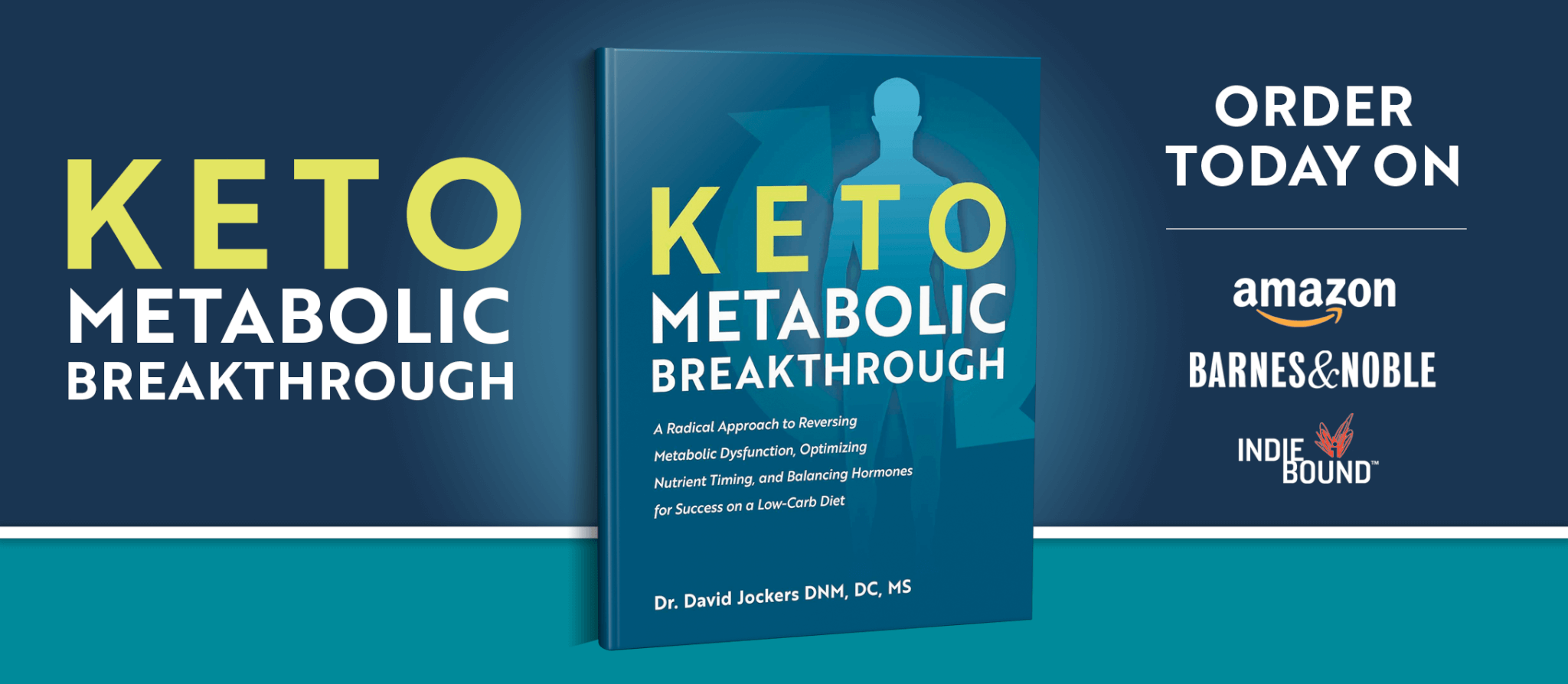


I started a keto diet almost 2 weeks ago. I am drinking almost a gallon of water/day, using the Cronometer app to balance my macro ratios, but I am still only small ketones while the other two members of my family that are doing this with me are always in moderate to large ketone range on urine strips (we are essentially eating the same meals). I also am either going to bed with a headache or waking up in the middle of the night with terrible headaches that I have trouble getting back to sleep. Any insight?
Hey Carie, the urine strips aren’t necessarily the most accurate method of measuring your state of ketosis:
https://drjockers.com/ketones/
You may need mitochondrial support as well. I would reccomend using MCT oils, magnesium supplementation, and potentially brain supercharge which is a mitochondrial support supplement here: https://store.drjockers.com/products/brain-supercharge-capsules
MAgnesium: https://store.drjockers.com/products/brain-calm-magnesium
MCT Oil: https://store.drjockers.com/products/bulletproof-upgraded-xct-oil
I have a product cAlled Natural Calm which contains magnesium. Is that sufficient magnesium for this diet?
I love natural calm! I would think it would be the best for adding mag to your diet.
That one is a great option! I personally use this one as it contains magnesium L-threonate which has been shown to cross into the brain https://store.drjockers.com/collections/top-sellers/products/brain-calm-magnesium
Good Day Dr. Jockers
I have been keto for a year. Not to lose weight, but, as a preventative, as I have one copy of the APOE4 allele. Before Keto my PH was in good balance, however, now I am very acidic. I am 56 yr old female, 5’6″, 128 lbs, active with both cardio and weights. I do not overconsume protein, ie., < 47 g/day. Ketone readings are anywhere between .9-2.2 and BG average is around 4.4-4.7. I drink lemon water every morning and follow all of your 'yes, no' guidelines outlined here in terms of diet. It's strange that I will be very acidic first thing in the AM, however, tend to get more balanced throughout the day. If I do drink alcohol, I seem to be less acidic in the AM which I know is contrary to what you would expect. Just wondering if you have any thoughts as to how I can get a more balanced PH on a regular basis as we all know how being acidic is a breeding ground for disease and the reason I follow this WOE is to prevent that from happening. Many thanks!
Sorry to hear about this Kim! Maybe this will be helpful for you: https://drjockers.com/fatigue-related-acidosis/
Hello Dr. Jockers, I really enjoyed reading your article on ketogenic diets and acidity. I had many assumptions about this subject and it was helpful to read your point of view. The issue I’m still having is about long term dietary goals.
I once attended a seminar by a doctor who gave a comprehensive list of ideal foods to eat daily, it was essentially raw (and vegan) with the exception of sprouted cooked legumes and steamed vegetables. He also advised limiting sprouted or cooked non-gluten “pseudograins” to 1cup no more than 3x weekly. Another recommendation was having a large colorful vegetable salad as well as a fruit medley bowl every day to obtain the many antioxidants and phytonutrients offered. He also included fruit based fats, nuts/seeds, and seaweed to wrap things up. Total calories we’re very low, only 1000-1200, a calorie restriction long term diet model which research has repeatedly shown in rats and monkeys to be antiaging, ie “healthy”. After 10 years of new evidence and ever evolving optimal diets out there, I still agree with his advice but it is very difficult to comply
with given the restrictive nature and living in a tempting processed and convenience foods society.
I still want to try keto and don’t mind increasing protein and giving up fruits short term but what are your thoughts on effects of this long term? Also what are your thoughts on keto during pregnancy?
Thanks
Serena
Thanks Serena. Yes, this doctor was unfortunately very miss informed. I believe keto or cyclical ketogenic diet can be a fantastic long-term lifestyle for a wide variety of reasons. Here is a helpful article. I do not recommend keto during pregnancy or nursing however as it is a diet that mimics fasting and can tell the body there isn’t enough food available for a child to be born and breast milk to be made. https://drjockers.com/benefits-ketogenic-diet/